What Is IOT?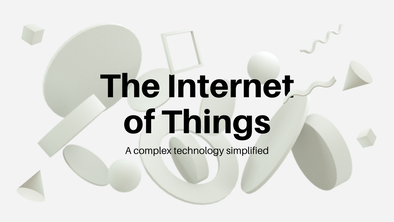 Simply put, IoT is the abbreviation for “Internet of Things,” but to answer the question I searched it up on Wikipedia for you; IoT “is a system of interrelated computing devices, mechanical and digital machines, objects, animals or people that are provided with unique identifiers and the ability to transfer data over a network without requiring human-to-human or human-to-computer interaction.” Still not sure what that means? Read below! Pretty much anything with the label “smart” on it has to do with IoT. Smart phones, smart homes, smart controls, smart lighting, smart businesses, smart speakers, smart locks, smart cameras, smart appliances, smart fixtures, yada yada yada. IoT is represented by things that can be connected to the internet. Wikipedia also tells us that IoT was basically created and defined by 2009 when the number of objects connected to the internet was higher than the number of people connected to the internet. Let’s think about this. Out of 7.5 billion people on the planet, with only 15 leading countries in technology, and only 50 top electronic distributers, starting in 2008 there have been more devices connected to the internet than humans. How? When an object is able to connect to another device or the internet without the help of a human, it’s in the category of IoT. Anything that doesn’t need human direction to preform a task connected to the internet has its own network. It can function properly on its own. Simply using your smartphone or turning on your laptop doesn’t disregard this process. You have a say in what is sent and received on your end, but your devices don’t rely on you to make them compatible with sharing information across the internet or being able to connect to other networks. You don’t have to manually carry a text message, or an alert signal, or an email. Appliances do it for you. IoT isn’t a bad thing (if that thought crossed your mind). Technology has been created for one thing, to make every day more convenient. IoT is proof that technology has been working hard to do things, so humans don’t have to. IoT is a favor. We Are More loves working with the internet of things to give people more convenience and better quality with the human thought put into which devices can help you best
No copyright infringement is intended.
1 Comment
Favorites are powerful. Think about five favorite physical things (that aren't food or people). Do any of those things include technology? Don’t lie.
Imagine a world where life could still be fully functional without technology. I bet you can't. Even though “they” did just fine back in the day without it, people today can’t think of a time without that convenience. From outlets, to lightbulbs, internet communications, refrigerators — Making life a separate entity from technology is kind of pointless. Why regress when we’ve come so far. Right? Do we “need” technology? No. However, if the world went dark tomorrow, people would either scramble and provoke chaos or die. Literally. Doctors rely, heavily, on technology. They know a lot more than I do, but have you ever met a physician that can tell you exactly what’s wrong with you just by giving them your symptoms without taking a scan or blood test? No, but google can. (That was a joke Jimmy, you don’t have a ruptured spleen.) Technology gives us perspective, maybe a little narrow, maybe a little too wide, depending on who you are and how you think. Does it control your life? Does it give you more control? Does it help you work harder? Or make you lazy? There are pros and cons all around. The bottom line is, technology is what you make it. As a business who promotes all kinds of leading technologies, We Are More makes it a point to bring human knowledge to the table. They stick with you on every project, they pick up every call, they talk you through and fix every issue because technology doesn’t always tell you what’s wrong. When technology is abused it can lead to more than a few cons, but using it efficiently helps everyone. We Are More is there to make sure that technology is used to your benefit instead of your downfall. No copyright infringement is intended. Top 4 PROS and CONS for Traditional and Smart LocksWe all love the old nob and key, but smart locks are becoming the new crush of modern-day. Or are they? Let's take a look at the pros and cons of both, and you can decide for yourself. (Before continuing below, you can find an in-depth description for both types of locks here.) Traditional Locks: Pros 1. PRICE. You can't beat the price of a traditional lock. You can find them as cheap as $9 at Walmart, maybe even cheaper elsewhere. 2. INSTALLATION. It's pretty easy as long as you know how to use a screwdriver, or know how to read directions. 3. No technical difficulties. As soon as your lock is in place it's ready to be used, issue free! 4. Only a certain shaped key has access to the lock. No other key is designed to fit the lock. Unless you've made multiple keys, only those with the key have access. Traditional Locks: Cons 1. The downside of having a traditional lock and key is that you need a key. Don't lose it, or you might have to crawl in through a window! 2. It's easy for these locks to be removed from your door by intruders leaving them with easy access into your home if they're good with a screwdriver too. Easy come easy go. 3. House guests and new roommates need the key for entry, which is an inconvenience if you can't be two places at once or don't want to make a replica. 4. Traditional locks are good for picking. Literally, since there's a keyhole someone could pick the lock, if they're into that. Smart Locks: Pros 1. CONVENIENCE! All you need is a secure access code, no keys necessary. Smart locks are also compatible with smartphones through an app where you can lock and unlock your door no matter where you are. No worrying about needing an extra key for guests or trying to remember if you locked the door or not, just check/use the app. 2. ALERT SYSTEM. It's not as easy for a smart lock to be removed from a door by an intruder because most smart locks have a built-in siren or alarm system to let you know about any suspicious activity. 3. No one can pick your lock if you have a keyless entry. 4. Bluetooth camera connectivity. Some smart locks (there is a variety) can connect to your security camera system or come with a camera built-in which is compatible with smart lock apps and can be hooked up via Bluetooth so you can view any camera activity directly from your phone. Smart Locks: Cons 1. "Dolla dolla bill ya'll." These things can get pretty pricey. I've seen smart locks that range up to $800, but I'd pay a lot for safety too so no judgment here. 2. Technical issues. Some smart locks require a network connection, they can also run out of battery life. While other malfunctions could mean you need an upgraded lock. 3. Code hacking! If someone has the time, or your code is simple to crack-- they can certainly hack it. Make sure not to use a birth date just to be safe. 4. Instead of depending on a key you have to depend on a smartphone or a code. Just keep your smartphone charged and/or don't forget your lock code! There are far more pros and cons to both locks, but after this little list which one do you like more? We Are More specializes in smart locks, so if you have any more questions about those or need help installing multiple for your home or business (including alarm systems or any security control) let us know. No copyright infringement is intended. Any Space Can Be Smart With An Amazon AlexaGenerally, an Amazon Alexa listens and responds to requests like setting alarms, playing music, and answering questions that you might’ve looked up on your computer instead. The smart speaker is activated by voice commands when you address the device by saying “Alexa” before any request. People can turn any office or living space into a smart location by simply having an Amazon Alexa.
There is a long list of “smart” tasks that Alexa can do besides the general uses. There are also a variety of Alexa devices to use which include voice activated remote controls for all control systems, thermostats, security and doorbell cameras, alarm clocks and weather monitors, thermostats, outfit organizers, and of course home and portable speakers, connected by WiFi or Bluetooth. The number of devices provided leads to a wide range of smart home capability. Aside from asking about the weather, finding immediate answers to questions, or enjoying a fuller sound system (Amazon provides Alexa subwoofers too) you can also control the rest of your home with your voice as well. Camera feeds, temperature, locks, smart outlets, lighting, door bells and so much more. Alexa has over 50,000 skills available to users, and Amazon Alexa products also come in kits/bundle packages to ensure you have the best experience for a startup smart home or smart business. After connecting your Alexa to other devices and/or apps, such as your coffee maker, or smart vacuum, Alexa can do things for you without you moving a finger. Want your coffee ready in the morning? Ask Alexa to make your coffee at a certain time so it’s waiting when you wake up. Don’t have enough time to vacuum manually? Tell Alexa to start the vacuum for you. Need a personal gym trainer but don’t have time for the gym? Ask Alexa about her 7 minute workout. To see a detailed list about more of the significant skills Alexa can do, click here and here. We Are More uses an Amazon Alexa to control lighting, music, projection screens, and televisions in their office. Whether it’s a shop or business office, there are a lot of options for turning it into a smart space. Conference calls can be put on a louder speaker at board meetings, no more fumbling in the dark, just ask Alexa to turn on the lights when opening up in the morning or turning off lights when closing up at night. The most known feature and personal favorite is having control of background music, connect other smart speakers to a single device to play music throughout the store or office. There’s no doubt that these handy devices are becoming part of everyday life for some. They’re easy to use, timesaving, and cost effective. If you’re someone who doesn’t want to spend a whole lot on installations for a smart home or smart business, then Amazon Alexa is a perfect fit for you. Take it from We Are More, they love Alexa! No copyright infringement is intended. |
Our AuthorSamara Towers does We Are More's PR & Marketing which includes writing our blogs! She was born and raised in Hawaii and graduated from Corban University with a Bachelors Degree in Creative Writing. She produces content to give our audience more insight and opinions on technical solutions big and small. Archives
January 2023
Categories |
Live Hawaii Chat Support
×
Connecting

You:
::content::
::agent_name::
::content::
::content::
::content::
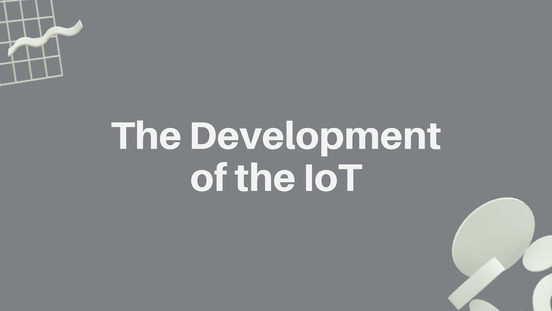
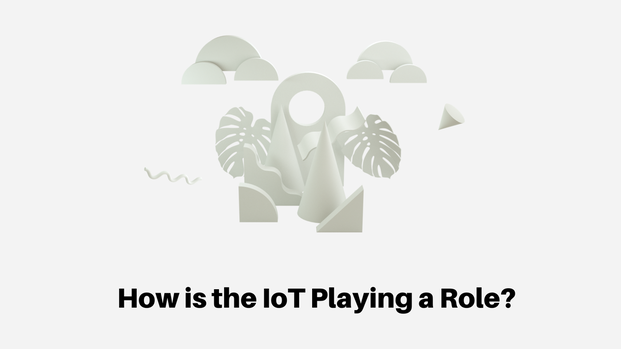


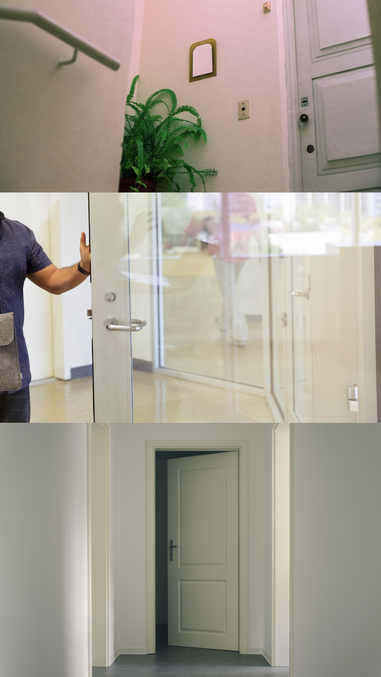
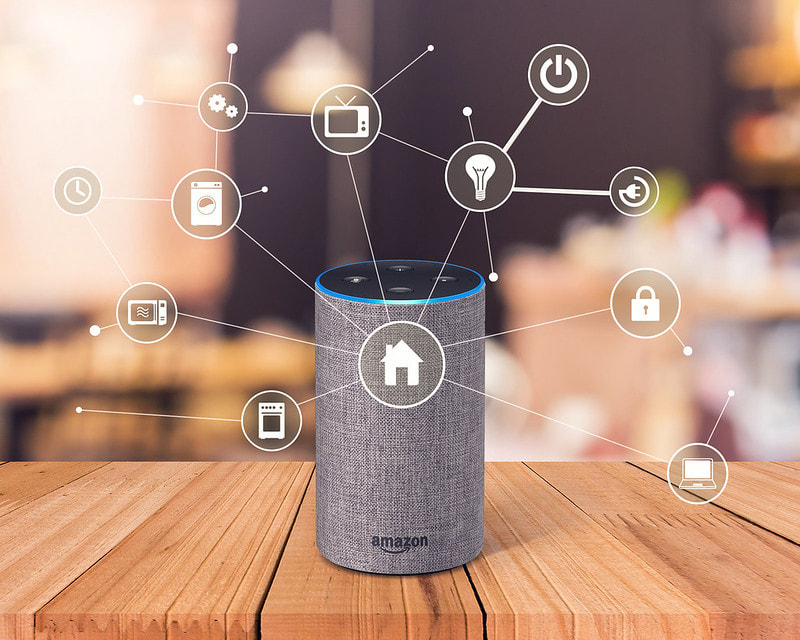

 RSS Feed
RSS Feed